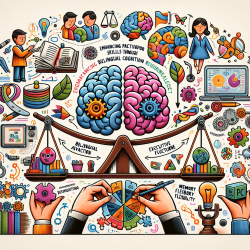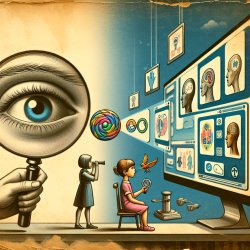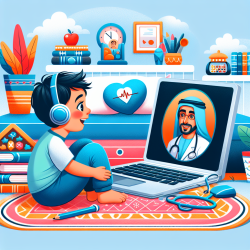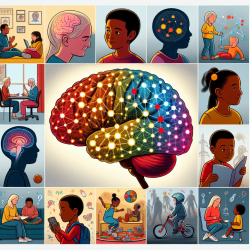The realm of bilingual cognition offers a wealth of insights for practitioners aiming to enhance their skills in supporting bilingual students. The research article "Measures of Bilingual Cognition – From Infancy to Adolescence" provides a comprehensive review of how bilingualism influences cognitive abilities across different developmental stages. This blog post delves into key findings from the research and offers practical ways for practitioners to implement these insights in their practice.
Understanding Bilingual Cognition
Bilingual cognition encompasses various cognitive abilities that are influenced by the experience of managing two languages. The research highlights that executive function, memory flexibility, and theory of mind are critical areas where bilingual individuals often show differences compared to monolinguals. Understanding these areas can help practitioners tailor their approaches to better support bilingual students.
Executive Function
Executive function (EF) refers to a set of cognitive processes that include inhibitory control, attention shifting, and working memory. The research indicates that bilingual individuals often exhibit enhanced executive function skills due to the cognitive demands of managing two languages. Practitioners can leverage this by incorporating activities that challenge and develop these skills in bilingual students.
- Inhibitory Control: Activities like the Stroop task or Simon task can help strengthen inhibitory control by requiring students to suppress automatic responses.
- Attention Shifting: Encourage tasks that require students to switch between different sets of rules or perspectives, such as sorting tasks with changing criteria.
- Working Memory: Use exercises like backward digit span or memory games to enhance working memory capacity.
Theory of Mind
Theory of mind (ToM) is the ability to understand and predict others' mental states and intentions. The research suggests that bilingual children may develop ToM earlier than their monolingual peers. Practitioners can support this development by engaging students in activities that promote empathy and perspective-taking.
- Puppet Play: Use puppets to enact scenarios where characters have different beliefs or desires, prompting students to predict outcomes based on these perspectives.
- Storytelling: Encourage storytelling sessions where students create narratives involving characters with diverse viewpoints.
Memory Flexibility
Bilingualism has been associated with enhanced memory flexibility—the ability to generalize learned information across contexts. Practitioners can foster this skill through varied learning experiences that require students to apply knowledge in new situations.
- Cue-Based Learning: Use cues from different contexts during lessons to help students transfer knowledge across subjects.
- Cognitive Games: Incorporate games that require strategic thinking and adaptation to new rules or environments.
The Importance of Further Research
The research underscores the need for ongoing investigation into how bilingualism affects cognition. Practitioners are encouraged to stay informed about emerging studies and consider participating in research initiatives. By contributing to this growing body of knowledge, educators can help refine strategies that benefit bilingual learners.
Conclusion
The insights from "Measures of Bilingual Cognition – From Infancy to Adolescence" offer valuable guidance for practitioners seeking to enhance their skills in supporting bilingual students. By focusing on executive function, theory of mind, and memory flexibility, educators can create more effective learning environments that cater to the unique strengths of bilingual learners.










